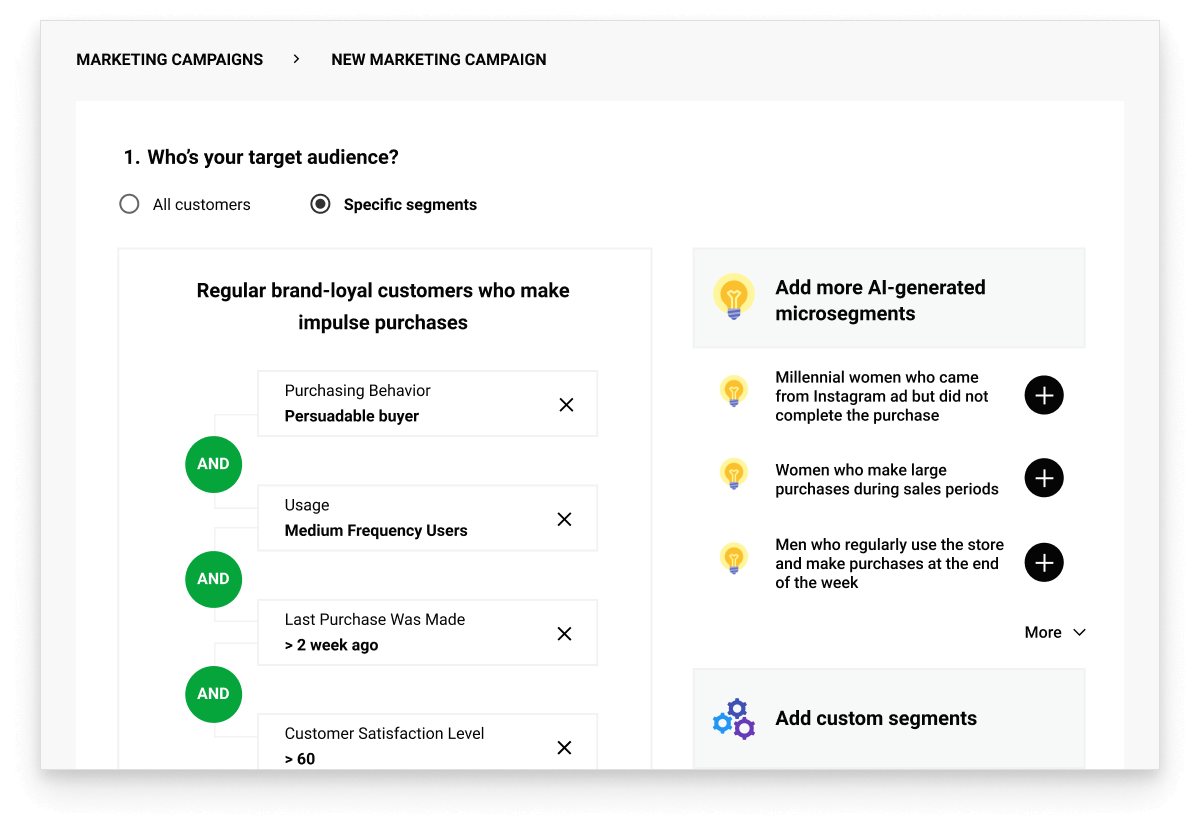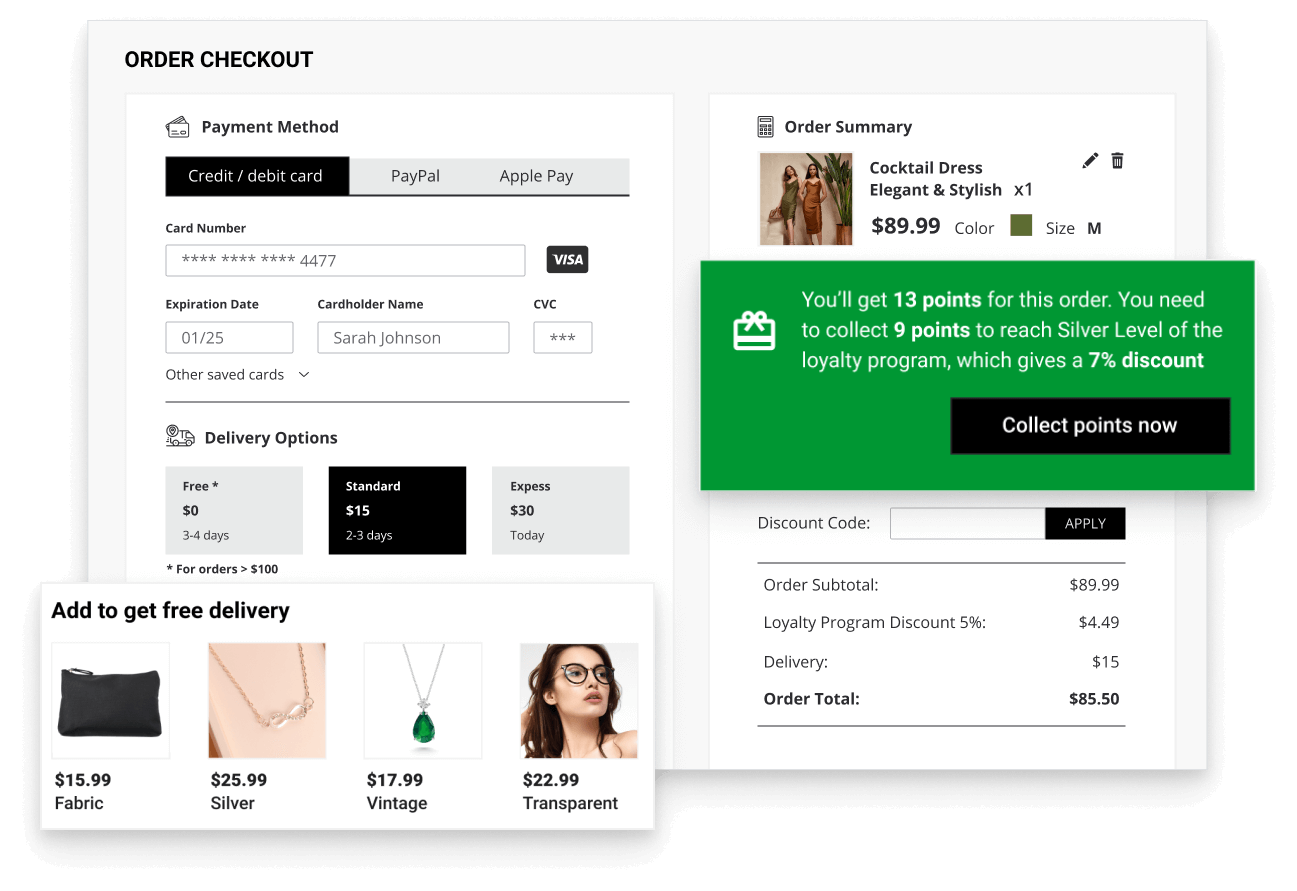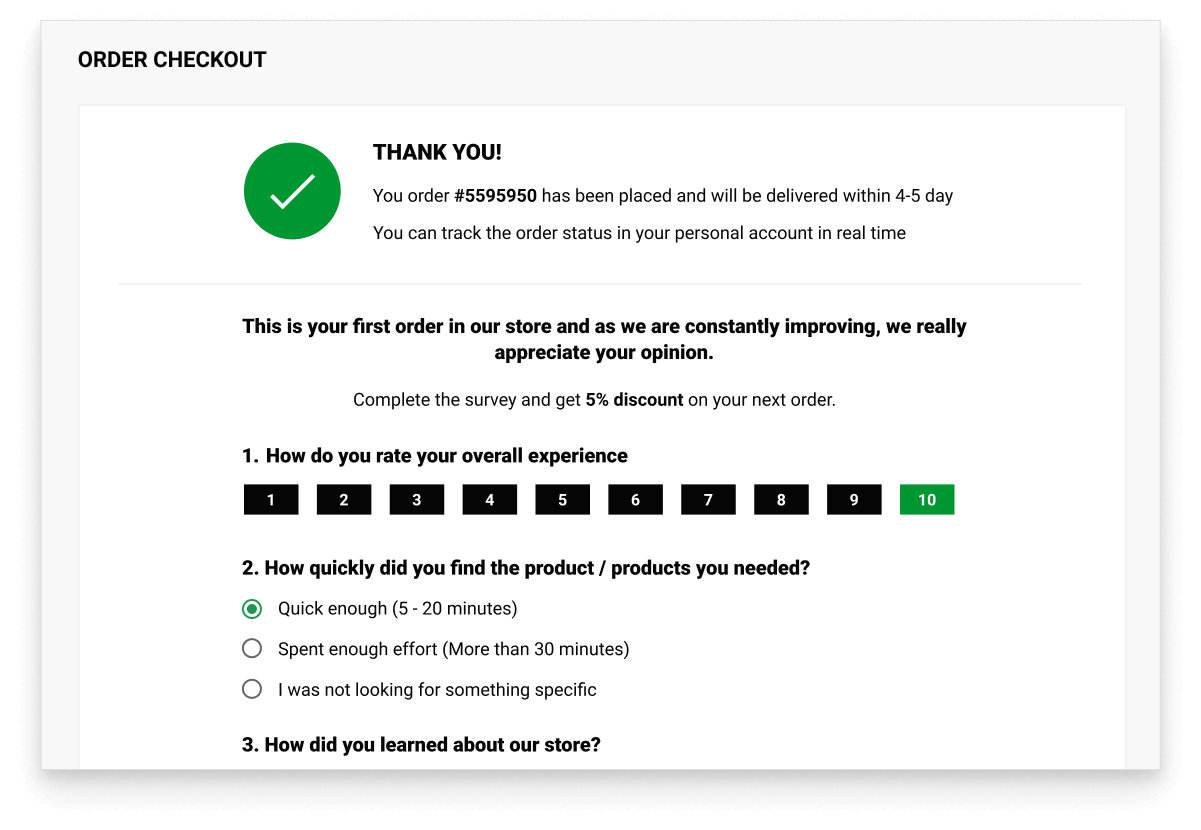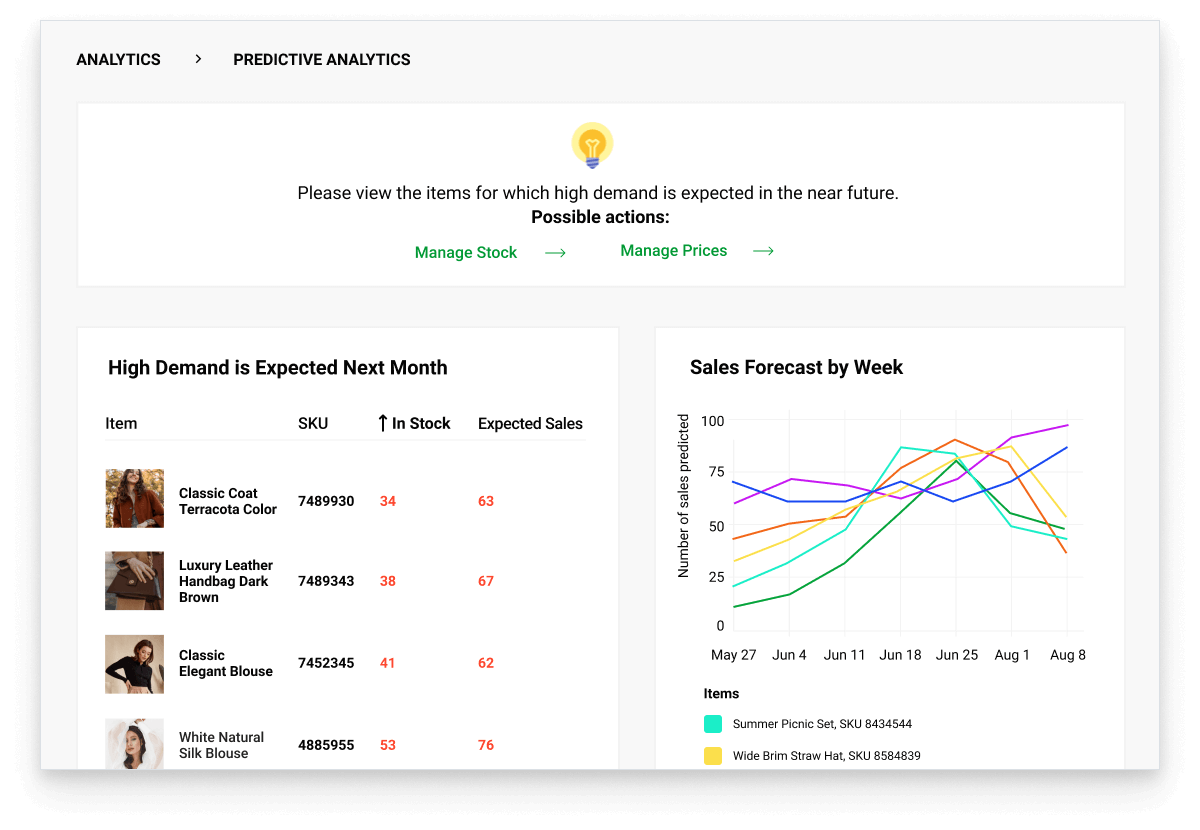Custom Shopping Cart Development with a Microservices Approach
Within 22 years in ecommerce development, ScienceSoft provides consultancy on implementation of custom ecommerce solutions.
Custom Shopping Cart: the Concept Explained by ScienceSoft
A shopping cart (also referred to as an ecommerce website or a webstore) is a web application used for digital commerce. A microservices approach to shopping cart development is applied when one needs flexibility in designing business logic and user experience for their online presence. A custom-built solution with decoupled microservices architecture is easier to evolve in the long run. In fact, shifting from monolithic to decoupled application architecture is commonly seen as one of the steps towards fundamental digital transformations in companies.
Introduction to the Microservices-Based Architecture of a Shopping Cart
At its core, a microservices-based solution is a number of loosely coupled services interacting via a communication protocol and each responsible for a separate function. At ScienceSoft, we build a custom shopping cart by putting each piece of ecommerce functionality into a separate service. Then, we connect these functional blocks to customer-facing digital touchpoints via APIs.

Ecommerce Feature Set to Build: Fundamental and Advanced
ScienceSoft manages to create shopping cart solutions attractive for customers and returning the best value for investment by complementing fundamental ecommerce functionality with advanced capabilities for a competitive edge.
Website management
Fundamental features
- Role-based admin access and permissions.
- Catalog management.
- Product bundles.
- Price promotions, e-coupons.
- High-level customer segmentation.
- International payment gateways.
- Integration of shipping carriers.
- Order and return management.
- Multicurrency and multilanguage support.
- Descriptive analytics and reporting.
Advanced features
- Personalized online merchandising.
- Tiered pricing.
- Contextual landing pages for marketing initiatives.
- Micro-behavioral customer segmentation.
- Unified order management for multiple sales channels.
- Predictive analytics for demand forecasting, marketing and promotional campaign planning, etc.
User experience management
Fundamental features
- Template-based web design.
- Layered navigation and filtered search.
- Variable products.
- Customizable product pages supporting various content formats (text, imagery, video).
- Point-based loyalty program.
- Knowledge repository (e.g., FAQ).
- Social media integration.
- User-generated content (product reviews).
- Registered and guest checkout.
- Automated tax calculation.
Advanced features
- Branded website design built on any front-end framework of choice.
- Product search enhanced with machine learning.
- 3D product visualization.
- AR-powered shopping experience.
- AI-powered product suggestions.
- AI-powered bots across chats, messengers in social media, phone.
- A store locator for omnichannel shopping experience.
- A custom checkout flow with upsells and customer-specific fill-in fields.
- User experience surveys triggered by user actions.
Integrate Advanced Technologies for Superior Customer Experience
Aiming high with customer experience, consider enhancing your ecommerce solution with advanced tools and technologies. Below, we describe specific use cases of the recommended techs that we target in ScienceSoft's projects.

Artificial Intelligence (AI) and Machine Learning
- Micro-behavioral customer segmentation to detect specific patterns of customer behavior and decipher personal characteristics underlying them.
- Product search to proactively understand a customer’s search intention and suggest relevant products.
- Copywriting to quickly create and test different versions of product descriptions and promotional content and choose the best selling ones.
- Customer journey analysis across multiple digital touchpoints to understand their contribution to the revenue pipeline and allocate the marketing budget wisely.
Personalization
- On-site upselling and cross-selling automation to optimize online merchandising of large product catalogs.
- Personalized marketing experience to be relevant and helpful to different customer micro-segments.
- Multiple landing page variations to match different marketing intentions.
- Quick personalized response to negative customer experience to restore trust and make a repeat visit possible.
Voice Recognition
- Voice-assisted shopping to let customers buy convenience products hands-free and place repeat orders instantly.
- Voice-controlled commands to improve the experience with video tutorials or assembly guides.
- Product recommendations made by a voice assistant to remind customers of products they previously bought.
Augmented Reality
- Interactive 3D product presentation to bridge the gap between online and offline experience and secure a confident product choice.
- AR-powered assembly instructions to deliver strong post-purchase support and reinforce customer trust.
Success Tips from ScienceSoft
|
|
Hire strong consultants at the start of the development project to achieve the best ROI from custom shopping cart development. |
|
|
Build your online store iteratively – start with an MVP, launch fast and advance it gradually responding to customer preferences that you continuously monitor. |
|
|
Having opted for microservices architecture, take a full advantage of a possibility to shift your customer experience strategy along the way – the deployment of new features is fast and doesn’t disturb the solution operation. |
|
|
Don’t follow blindly technology trends but get the feasibility of advanced technologies and approaches studied thoroughly to invest profitably. |
Trust Custom Shopping Cart Development to Experts
Building a custom ecommerce solution with microservices requires a meticulous business analysis stage and solid architectural experience at the development stage. With 22 years of expertise in ecommerce technologies, ScienceSoft offers end-to-end services in custom shopping cart development.
- Investigating business needs and mapping them into ecommerce features.
- Providing a feasibility study of a custom microservices-based solution.
- Defining responsibilities and functions of each microservice and designing a high-level architecture of the end system.
- Designing a storefront on a modern front-end stack to achieve a desired website look and bring to life planned user experience design.
- Architecting microservices for a custom ecommerce solution.
- Establishing API communication between microservices.
- Applying several testing layers to quality check a modular solution and launch it bug-free.
About ScienceSoft
Founded in 1989, ScienceSoft is a reputable IT provider with a worldwide presence and a vast service offering. Having set ecommerce as one of the strategic business directions, our team keeps apace with technology advances in the domain and meets diverse business needs of e-retailers with best-suited ecommerce solutions.







